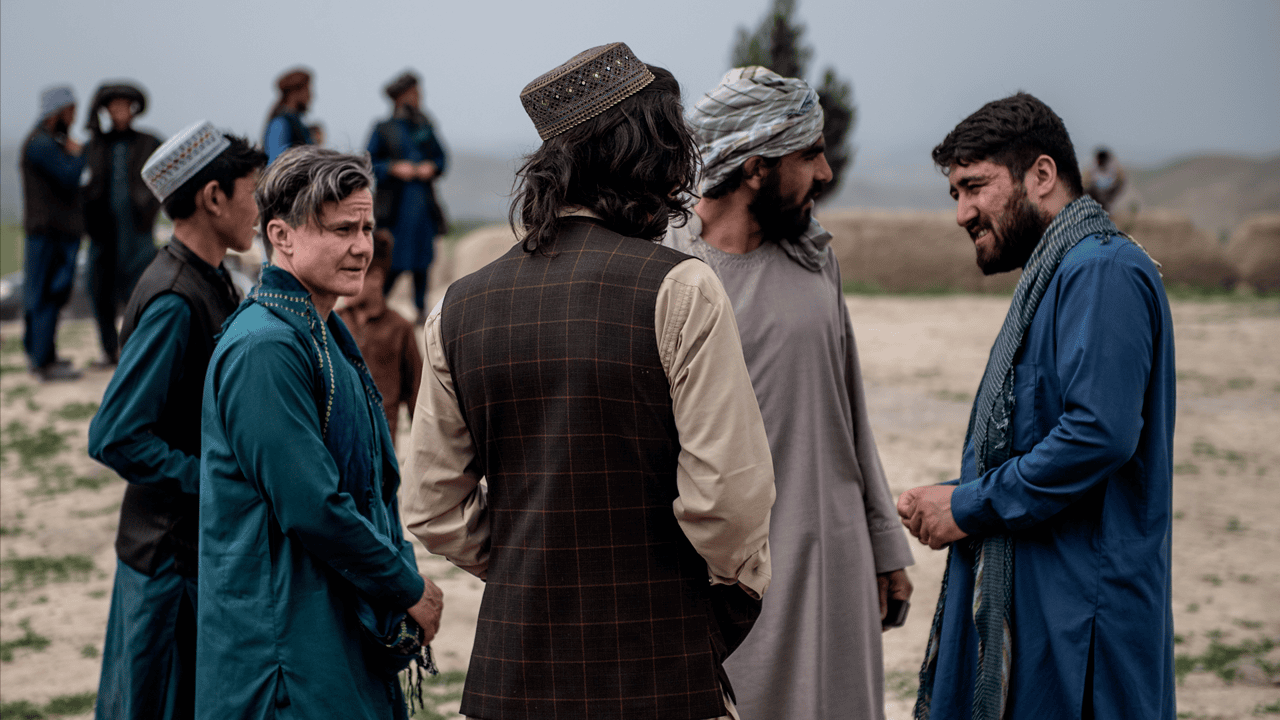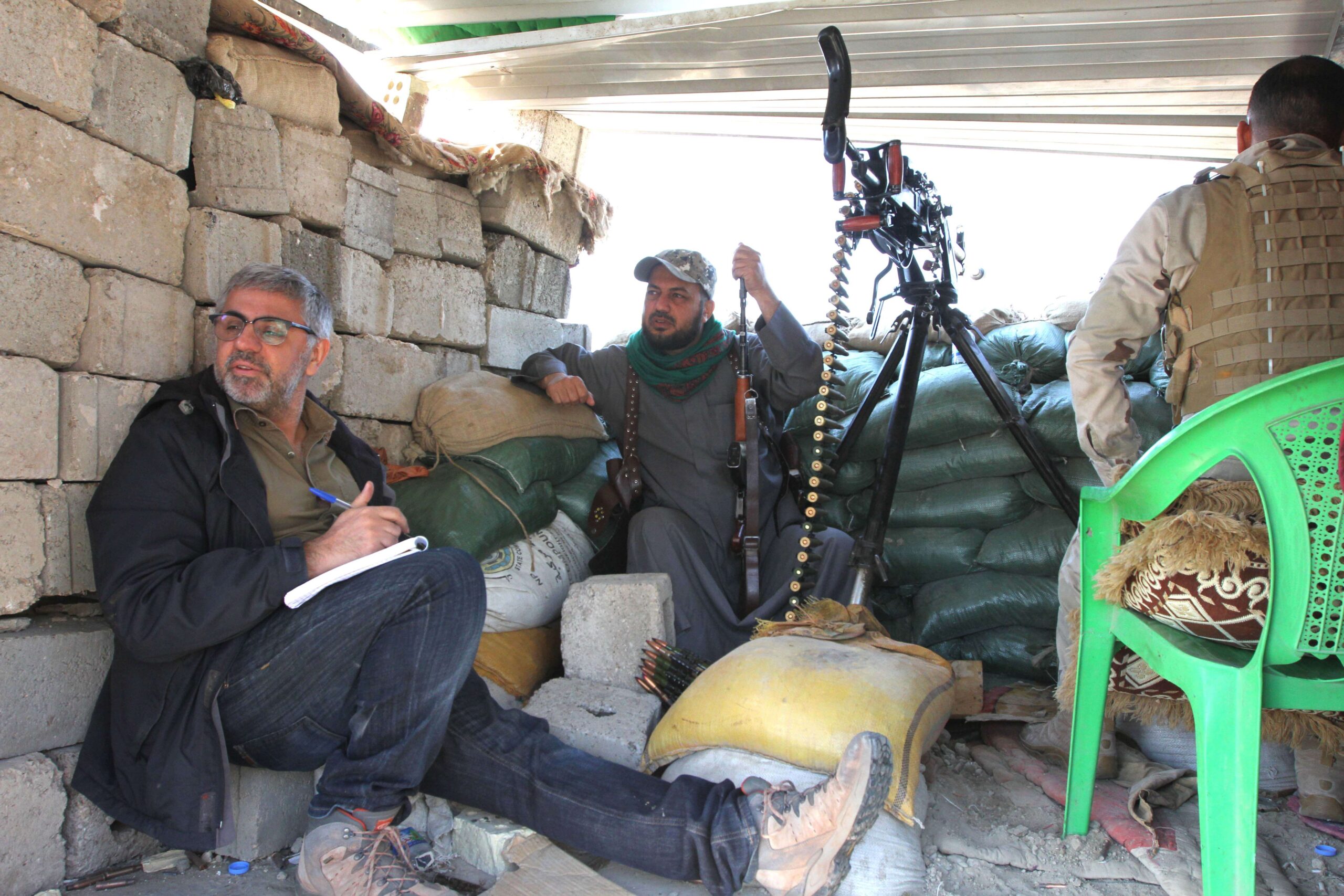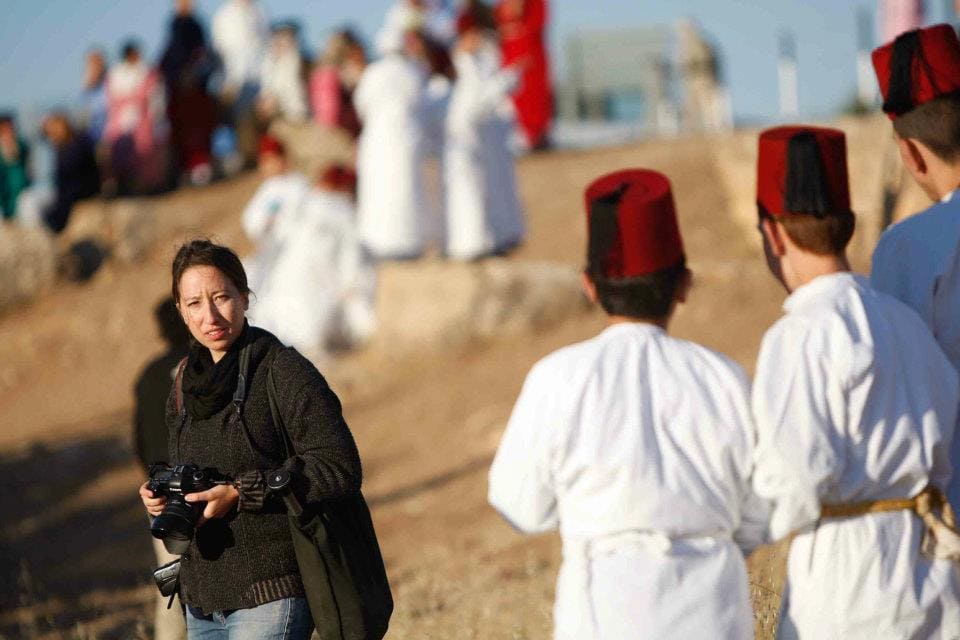Jessica Q. Chen is one of the latest casualties of what many media analysts are calling an extinction level event in journalism. The LA Times fired her and more than 100 of her colleagues, after the organization’s owner, Patrick Soon-Shion, said losses of up to $40 million a year could no longer be sustained.
It’s heartbreaking, because Chen has the type of resume that should make her teflon to such budget cuts:
She has years of experience producing stories for Al Jazeera, the Associated Press, and UNHCR. Her work at National Geographic earned her a DuPont award – one of journalism’s most prestigious accolades. She received an Emmy nomination for her Women of Apollo series. And she recently made her feature film directorial debut with Surf Nation. The movie will premiere on PBS during the summer Olympics, and tells the story of two young surfers battling their personal demons to become the sport’s first Olympiads from China.
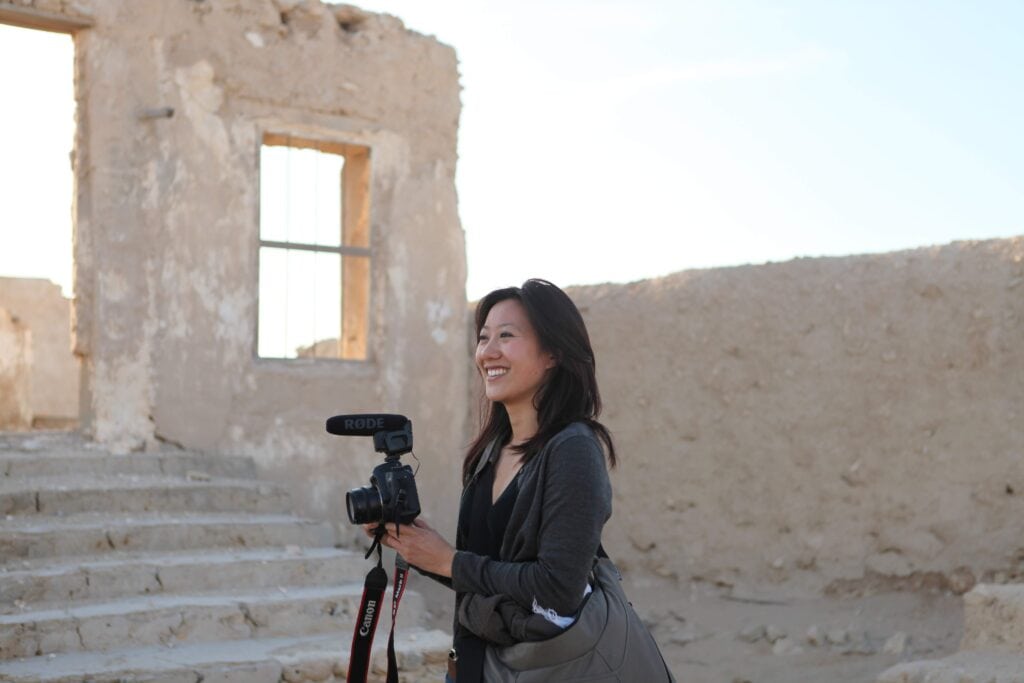
In a bygone era, Chen could very well be primed for a promotion. Instead, she’s unexpectedly searching for a job, as are another 3,000 journalists who lost their gigs from American print, broadcast and online news outlets during the past year.
We spoke about what challenges she faces while unemployed, and why she straddles the plane between objective journalism and a personal approach to her subjects.
“There’s such a push for true crime stories and celebrity biopics; and that’s affecting the audience’s expectation of what a documentary looks like…“
Jack Zahora: First and foremost, how are you doing?
Jessica Q. Chen: Yeah, I’m doing fine. All things considered. I think we all saw it coming. I’m brushing up on skills, thinking how to future proof my career, whether that’s getting an AI certification or learning more marketing and business skills.
JZ: Why is it that the Times looked at your position and said, “okay, she’s an award winning storyteller, but we can’t afford to keep her.”
JQC: Yeah, I do think the appetite of our audience is more narrow. I feel like, in the last three years even, there’s such a push for true crime stories and celebrity biopics; and that’s affecting the audience’s expectation of what a documentary looks like – the production value has shifted. And those changes don’t really align with the way that news organizations have done things in the past.
JZ: You’ve just directed your first feature length film. Does it encompass the changes you’re talking about, which makes it more in alignment with modern viewers?
JQC: I think there’s always room to change, and I’m open to different styles. The cinema verite style of documentary filmmaking is a standard of news docs. It’s observational, and I love what we made.
JZ: Well tell me more about that. Because it seems like you could’ve told this story several ways: from westerners trying to make their stake in the Chinese market, to Beijing’s goals on the Olympic stage, or a bunch of rebellious, young surfers, living it up in a hotel with their old-school veteran coach from Australia.
JQC: We wanted the viewer to really make up their own mind as they watch the documentary. So it’s not a commentary on the government. It’s not a political piece. It’s purely showing the lives of these young surfers as they navigate the pressures of Chinese society and its government.
JZ: There’s a quote on the movie’s website that sticks out that says, “In China, our parents are pretty traditional: Study, find a job, start a family. We surfers don’t think that way. We don’t want a boring life.”
JQC: Yeah. Alex, is one of the country’s best surfers, but also doesn’t agree with officials. He said a lot to us that we didn’t include in the film, because we didn’t want him to put himself in a bad situation. He’s also a teenager. And Lolo – she also didn’t want to go to university and get a job and just, you know, move into the city and have kids. She surfs because she loves it. And so it’s about the two of them trying to figure out who they are as individuals. And surfing is just a way to tell that story.
“I think when the cameras are off, you’re not just there to be a filmmaker. You’re still a human going through the journey with them.“
JZ: Why do you choose a cinema verite style of filmmaking, when a lot of what we see in journalism – or even on YouTube – is driven heavily by personality?
JQC: I truly believe that everybody has a story to tell, and I have the privilege as a journalist of being the person that kind of gets to tell it – but through their words. I don’t really need to insert myself there. Where I do affect the scene is through the editing. That’s where my art comes through.
JZ: Expand on that.
JQC: Well in documentary filmmaking, the editor is almost at the director level, because we have so much footage. And it’s up to you to decide which fraction of a percent of that footage is used to tell the story. A lot of times editors are tasked with trying to read the director’s brain and figure out what it is that they’re trying to say, and then create that in the actual edit.
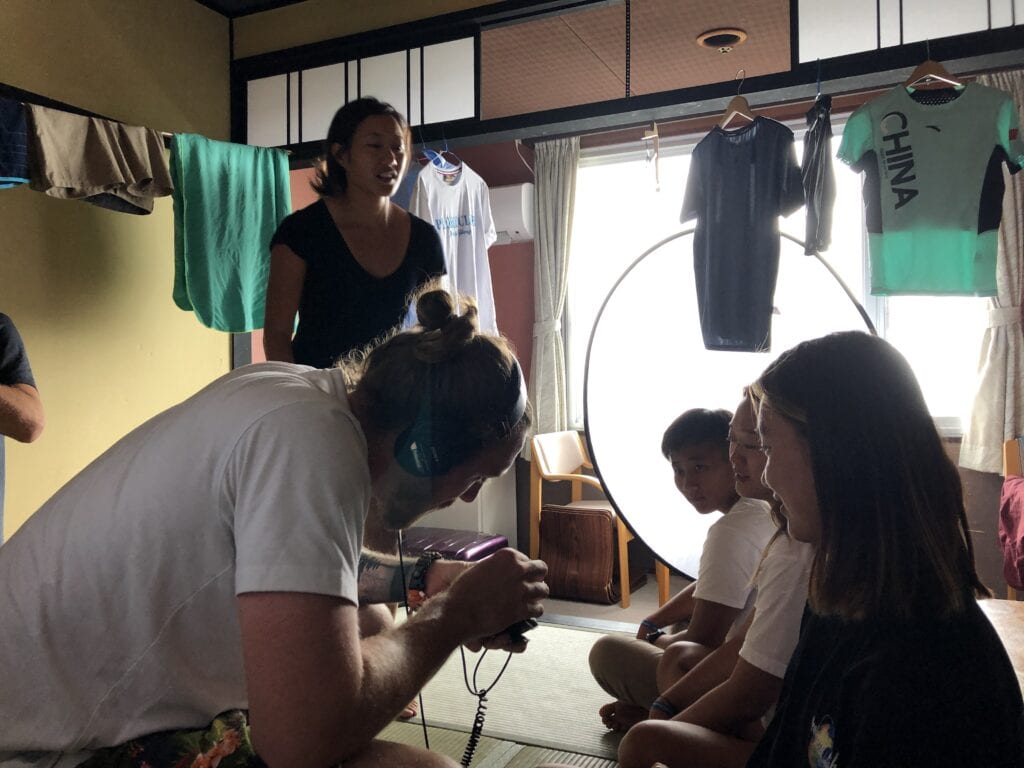
JZ: So do you also try to disappear into the background when filming your subjects?
JQC: Well, while filming I try to stay out of the way. In objective journalism you’re not really supposed to be involved in the scene. But I don’t think that’s how the best stories get made. For instance, Lolo, in Surf Nation, is a 20-some-year-old, trying to navigate her family’s and society’s expectations. And throughout the film, I think I was almost like her big sister slash therapist, as she was trying to sort it out with us. And the way the film’s cut, it seems like she just kind of has these realizations. But it took a long time for her to get there. Something about surfing really spoke to her, and she wanted to pursue her individual path. It didn’t really make sense to her family. And I connect with that as an Asian American filmmaker.
JZ: Do you think that connection helped Lolo open up to you?
JQC: For sure. I think when the cameras are off, you’re not just there to be a filmmaker. You’re still a human going through the journey with them. And I hope the audience also connects with that journey and feels a little less alone.

